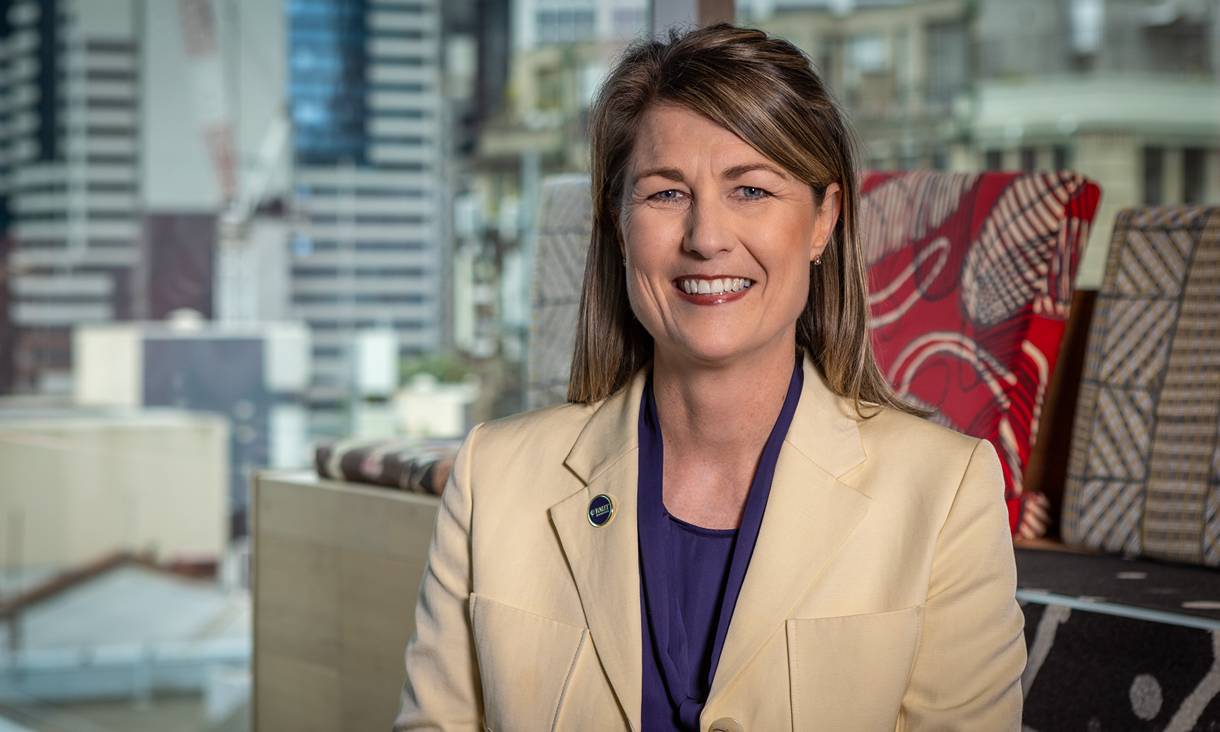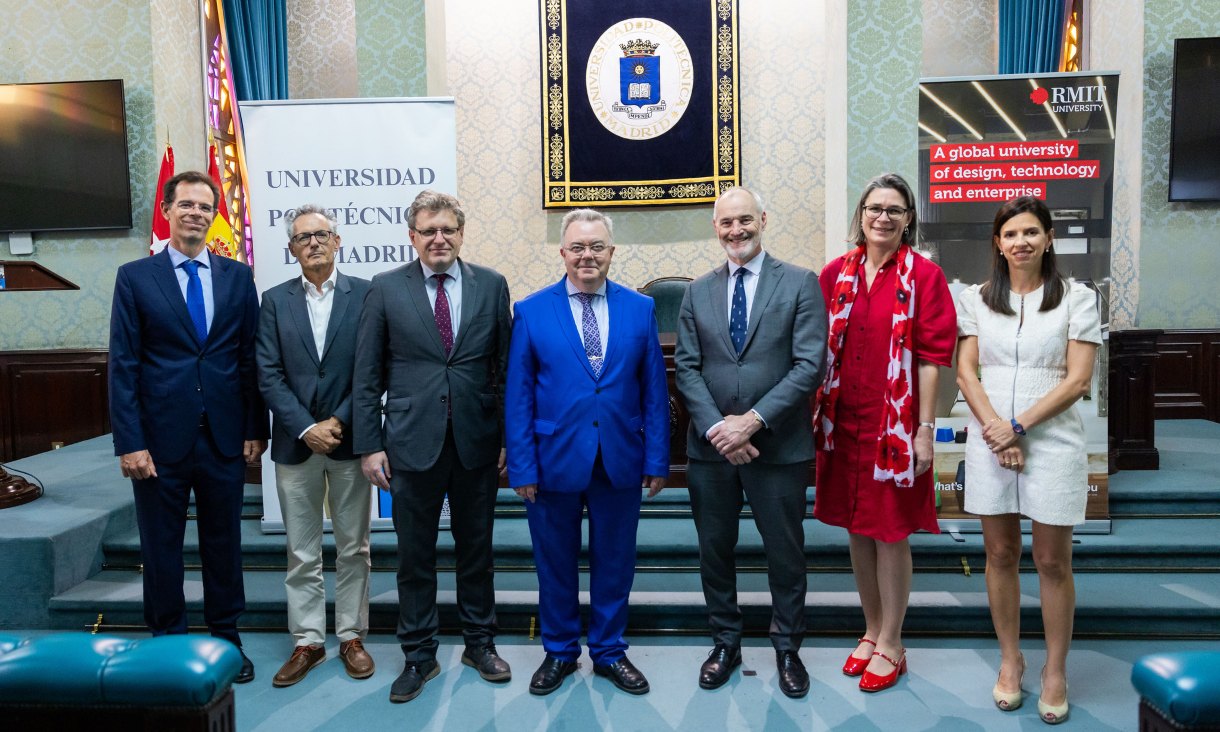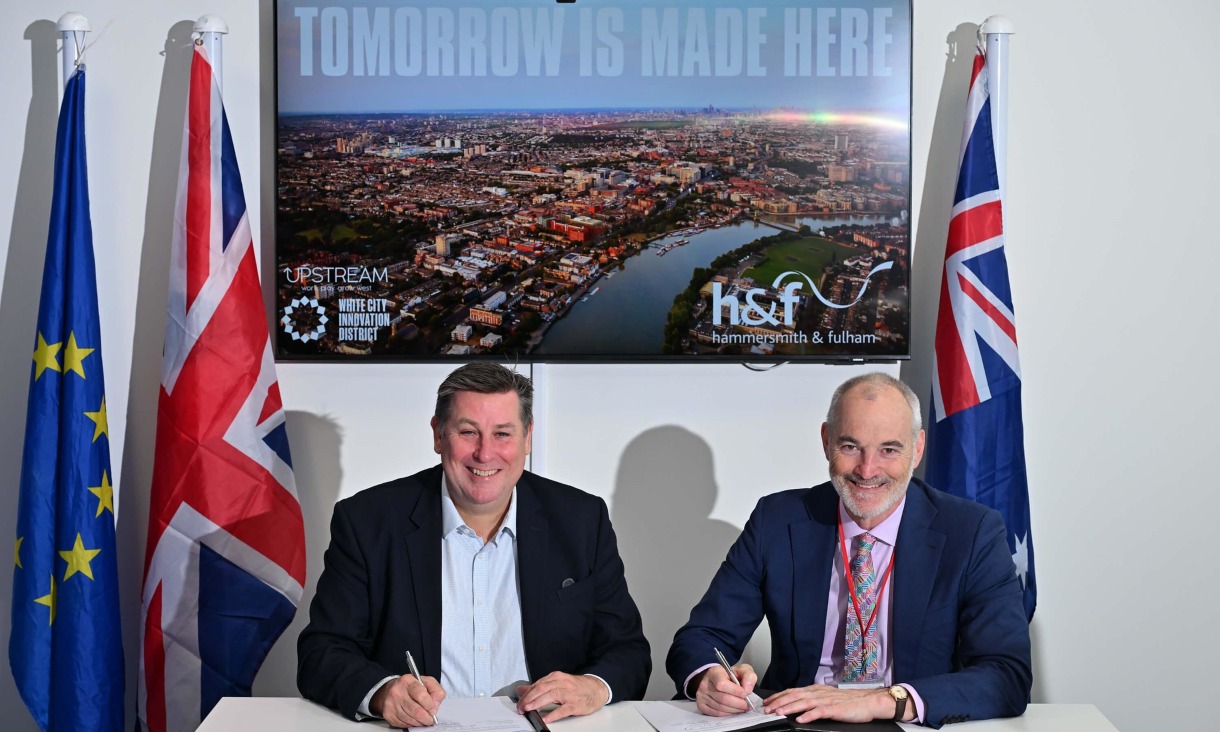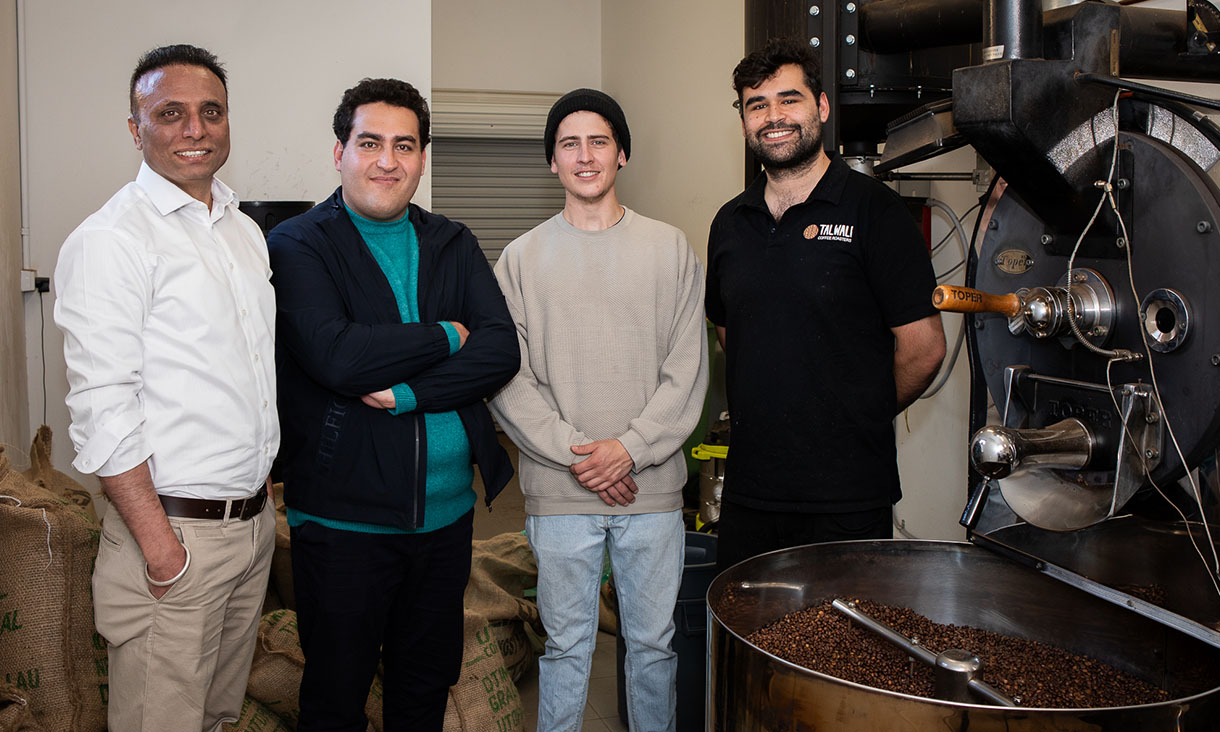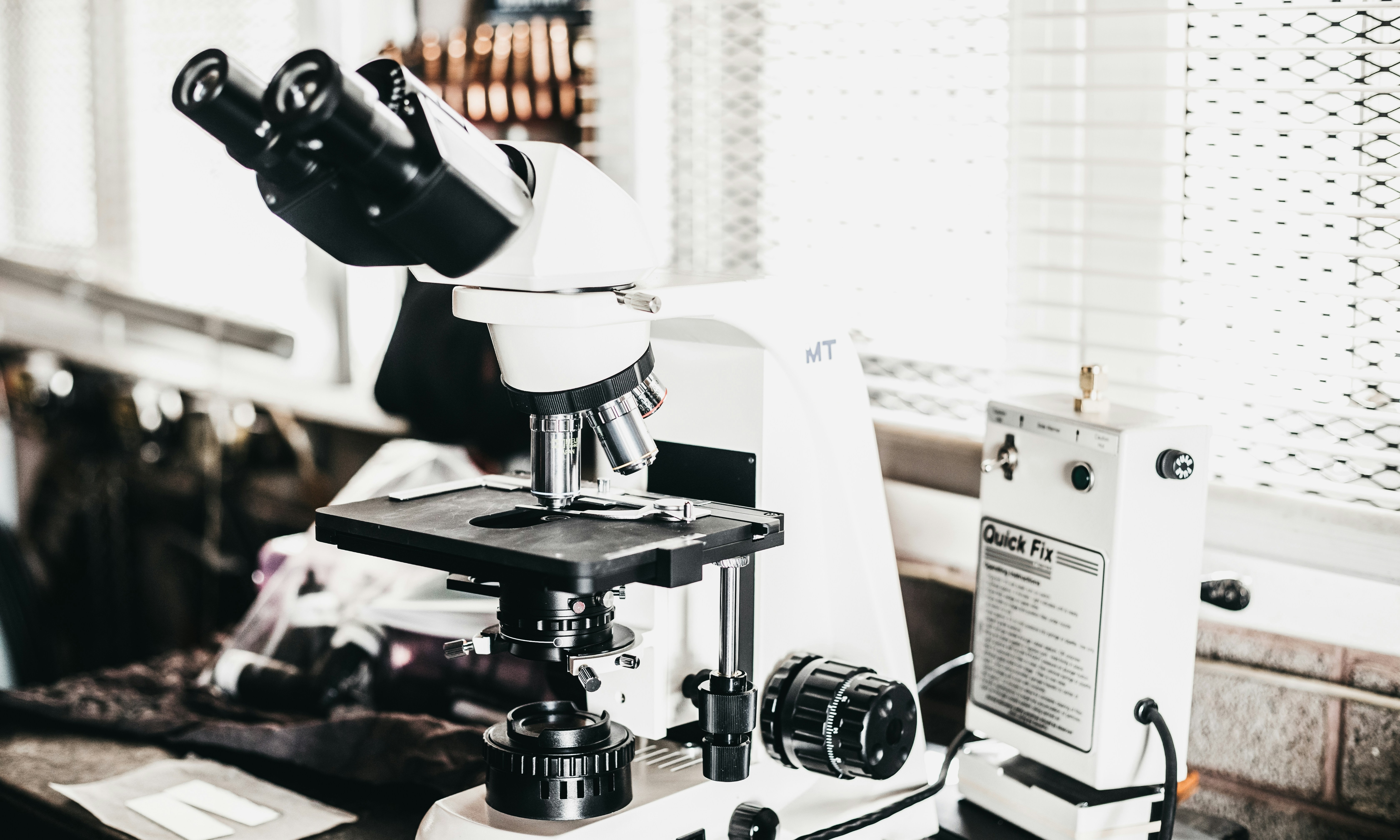Financial summary
At the end of 2019, RMIT was in a sound financial position. We delivered a strong financial performance with revenue increasing by 5% to $1.37 billion and future growth predicted for 2020. For the consolidated group, revenue increased to $1.51 billion in 2019 from $1.43 billion in 2018.
RMIT saw year-on-year international onshore student growth and despite capped funding for domestic students, we also saw an increase in the cohort of students in Commonwealth Supported Places and an increase in associated Fee HELP student payments.
To drive a quality student and staff experience and in line with our profit reinvestment strategy, our expenses also increased by 5% in 2019, largely due to salary increases as agreed in the 2018 Enterprise Agreement, as well as investments into enterprise-wide transformational projects and learning, teaching and research activities.
We continued to invest in learning experiences for our students, research capabilities and systems, new skills for our people, building infrastructure and technology. It is important to note these investments cannot be easily drawn down upon to release university funds.
Like any organisation, we are very focused on sustainably managing our income and expenditure to ensure that we can continue investing and delivering the best possible student experience across our many locations.
In 2019, RMIT had more than 12,000 staff and 94,000 students studying at campuses in Australia and internationally.
International students
We are extremely proud of RMIT’s diverse community and recognise the important role our campuses play in supporting a vibrant culture.
We remain focused on continuing our essential work of providing a quality education for our students no matter where they are currently located, however we know an immersive Australian study experience is extremely important to our international students.
International students are our friends, our classmates and our colleagues. They contribute significantly to RMIT University, the wider economy and a diverse and inclusive Victoria.
International students studying in Australia accounted for approximately 22% of our total student population in 2019, and 34% of our total consolidated revenue.
We also have students studying at offshore campuses, which we consider as international students, although it’s important to note they are not studying at our campuses in Australia – they are studying overseas, and they are considered as domestic cohorts in their local market.
All students studying at RMIT’s international campuses are noted in the University’s annual report as ‘fee paying offshore overseas students’ (sometimes noted as international offshore, or INTOFF).
International students studying at RMIT’s Australian campuses are noted as ‘fee paying onshore overseas students’ (sometimes noted as international onshore, or INTON).
Bundling offshore and onshore figures together to represent international students studying in Australia is an inaccurate representation of RMIT’s Australian operations.
Reconciliation
2019 was a record year for Indigenous graduations for RMIT, with 122 Indigenous students graduating, including the first ever graduate in aviation.
RMIT’s second Reconciliation Plan, Dhumbah Goorowa - Commitment to Share, was also launched in 2019. Dhumbah Goorowa builds on the foundations laid in RMIT’s first Reconciliation Plan by placing a sharper focus on the responsibility of non-Indigenous people to be in a relationship with Australia’s First peoples as sovereign peoples.
Diversity and inclusion
RMIT was named as an Employer of Choice for Gender Equality (EOCGE) from the Workplace Gender Equality Agency (WGEA) in 2019. This was based on significant progress made since 2018, including an increase in females in executive positions (senior officers), from 49.3 per cent to 53 per cent. We also achieved gender parity for our governing Council in 2017 which was maintained in 2018 and 2019. RMIT has continued this progress into 2020.
We continued to support flexible ways of working for staff, promote parental leave opportunities to fathers and encourage the career development of academics who have had career breaks through the introduction of the ‘achievement relative to opportunity’ option in academic promotion.
The University also achieved Bronze status (highest available) in the Athena SWAN program for Women in STEMM in 2019 and commenced implementation of a four-year action plan.
RMIT was awarded Employer of the Year in the Australian Workplace Equality Index (AWEI), recognising our commitment to celebrating the diverse genders, sexes and sexualities (DGSS) of our community. After being named as a Gold Employer in 2018, the 2019 accolade - the highest honour in the AWEI’s benchmarking system for LGBTIQ+ workplace inclusion - demonstrated our continuous improvement in building a culture of inclusion and diversity for staff and students from the DGSS community. RMIT was the first university and first public-sector organisation to receive this honour, and also received the Trans and Gender Diversity Inclusion Award.
Ensuring RMIT is physically, technologically and culturally accessible for people with a disability remained a key area of focus in 2019. RMIT was proud to be recognised as a top four organisation for accessibility in the Australian Network on Disability Access and Inclusion Index. RMIT was the highest-ranked organisation for ‘Products and Services’ for our provisions for students with disability.
Sustainability
RMIT generated over 500,000 kWh of electricity from on-site solar photovoltaic (PV) in 2019 and continued to investigate further installation options across the portfolio. We also continued a program of work to upgrade end-of-life infrastructure to higher efficiency equipment, allowing the University to achieve a 48% reduction in emissions during 2019, against a 2007 baseline.
Rankings
In 2019 RMIT was ranked 13th in the world for efforts to reduce inequality within and among countries (SDG 10) in the Times Higher Education (THE) University Impact Rankings. This performance was a testament to RMIT’s continued focus on diversity, inclusion, community and the environment, with widespread engagement across the RMIT community. In 2020 RMIT has seen further improvement in these rankings.
Released in 2019, RMIT ranked 238th in the 2020 QS World University Rankings. The University is also ranked eighth in Australia and 32nd in East Asia and the Pacific for employer reputation, and 22nd in the Top 50 Universities Under 50 Years Old. The QS Graduate Employability Rankings placed RMIT at 77th globally and eighth in Australia for graduate employment. RMIT also ranks in the world’s top 400 in the Academic Ranking of World Universities (ARWU) and the Times Higher Education (THE) World University Rankings.
Research and partnerships
In 2019 RMIT’s performance for research and innovation was the most significant in the University’s history. We transformed our research services operating model to better support our researchers and established new cross-disciplinary international partnerships and collaboration, including hosting a major new ARC Centre of Excellence for Automated Decision-Making and Society. We received $7.3 million across 17 Australian Research Council discovery grants over the course of the year.
Professor Calum Drummond was appointed an Officer of the Order of Australia in the Queen’s Birthday 2019 Honours List for outstanding service to science and innovation, and Professor Mike Xie was awarded an ARC Laureate Fellowship – one of Australia’s most prestigious competitive grants – to expand his research into sustainable, free-form architecture and was made a Member of the Order of Australia. Professor Roberto Sabatini was also awarded Scientist of the Year at the Defence Industry Awards.
In 2019, RMIT worked closely with a broad range of industry and government partners with the intent of delivering transformative student experiences, a future-focused workforce and research impact.
Partners included Inditex, Mitsubishi, L’Oreal Vietnam, Australian Centre of Moving Images (ACMI), Telstra, Microsoft, Salesforce and Cisco Systems. The University also strengthened its existing ties with the National Gallery of Victoria (NGV), the Department of Justice and Community Services, the Victorian Council of Social Service, the City of Melbourne and the City of Barcelona.
Following a major refurbishment, we re-opened The Capitol in 2019 as a contemporary destination for culture, education and innovation. We proudly retained The Capitol’s distinctive cinematic heritage, delivering a valuable cultural asset back to the city of Melbourne and the people of Victoria. The Capitol will provide work opportunities for students, delivering an unparalleled experience of collaborating with real industry partners and the professional creative community.
We look forward to re-opening our campus places and spaces when it is safe to do so.
COVID-19
Despite our strong financial position in 2019, the disruptions created by COVID-19 in 2020 have been impacting RMIT, just like many other organisations around the world.
As we continue to navigate this challenging time, our focus remains on providing a quality education for our students while minimising study disruptions wherever possible.
We have needed to reinvest more than $15 million towards our COVID-19 response in 2020, including essential support services for our students, technology innovation, cleaning and hygiene measures.
Cost measures
We are continuing to actively monitor the impact of the changing environment and taking action across our operations as and when needed.
To support the ongoing financial sustainability of RMIT, the Vice-Chancellor and the Vice-Chancellor’s Executive (VCE) agreed to reduce their overall remuneration by 20% and senior leaders were also asked to reduce their fixed salary by 10% or reduce their hours worked. Senior leaders and members of VCE will not be eligible for pay reviews or any additional salaried benefits this year.
We will also be providing options to our people if they would like to make a contribution to RMIT’s cost measures, such as a temporary reduction in their working hours or purchasing additional leave.
All travel remains restricted (restricted since February), consultancies have been reviewed and budgeted major projects have been rescoped, paused or stopped to drive important savings.
While we are, of course, reviewing our non-strategic assets in light of the challenges associated with COVID-19, the vast majority of assets we hold are essential for learning, teaching and research.
Outlook
While making predictions on future impacts is difficult due to the evolving nature of this pandemic, at this stage we foresee a potential $175 million revenue gap for RMIT in 2020.
Both domestic and international students are impacted by this global pandemic and we anticipate student enrolments to be down in 2020, with impacts into 2021.
Overall, we estimate RMIT revenue to be down roughly $300 million or 22% over the next two years should our borders remain largely closed.
While we aren’t in a position to make projections beyond 2021, the prolonged closure of international borders and reduced student enrolments will likely impact our financial position in future years.
Our operations have continued to evolve considerably over the past decade. In light of operational changes, different annual reporting requirements, and the unprecedented COVID-19 pandemic, using historical figures to predict future financial scenarios should be undertaken with caution.
As we manage through the situation, we are committed to adapting in every way we can to support the RMIT community and minimise study disruptions while ensuring a sustainable future for the University.
Our 2021 operating plan will reflect our reduced revenue expectations and we will be working hard to align our organisation for a sustainable future.
For detailed information relating to RMIT's coronavirus response, visit the dedicated COVID-19 information page.
- ends
For media enquiries, contact RMIT Communications: 0439 704 077 or news@rmit.edu.au
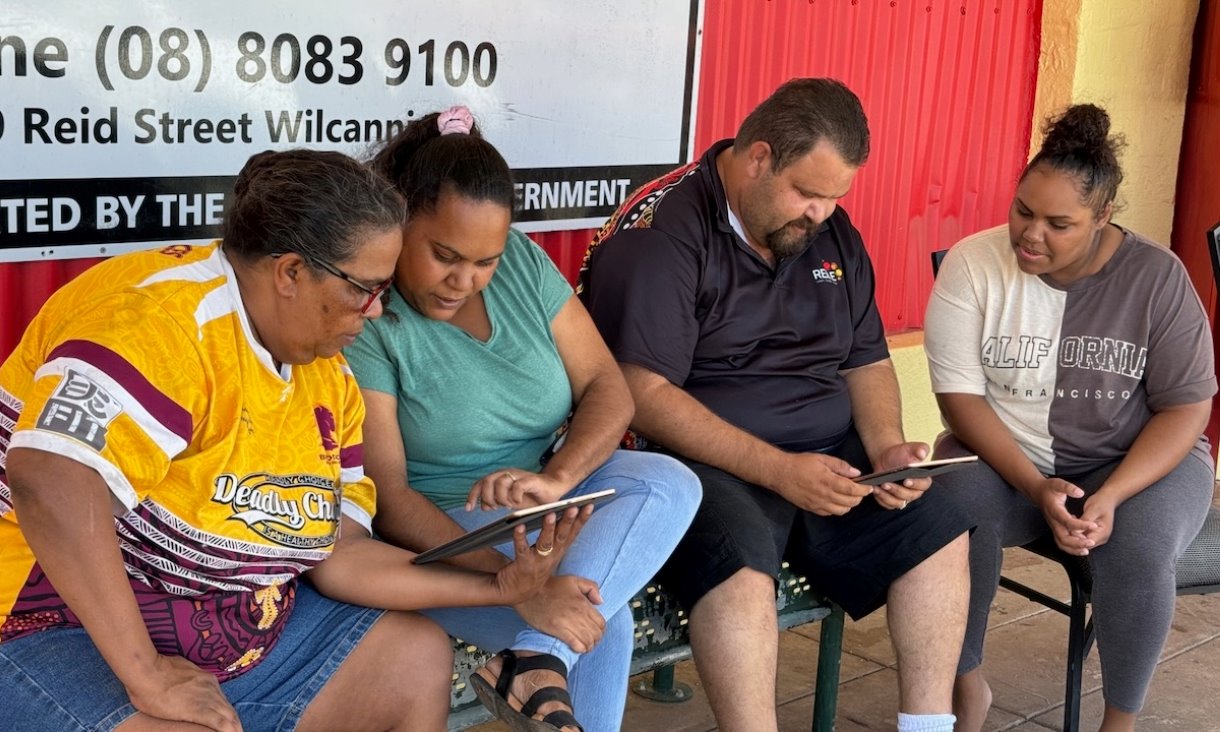
.jpg)

